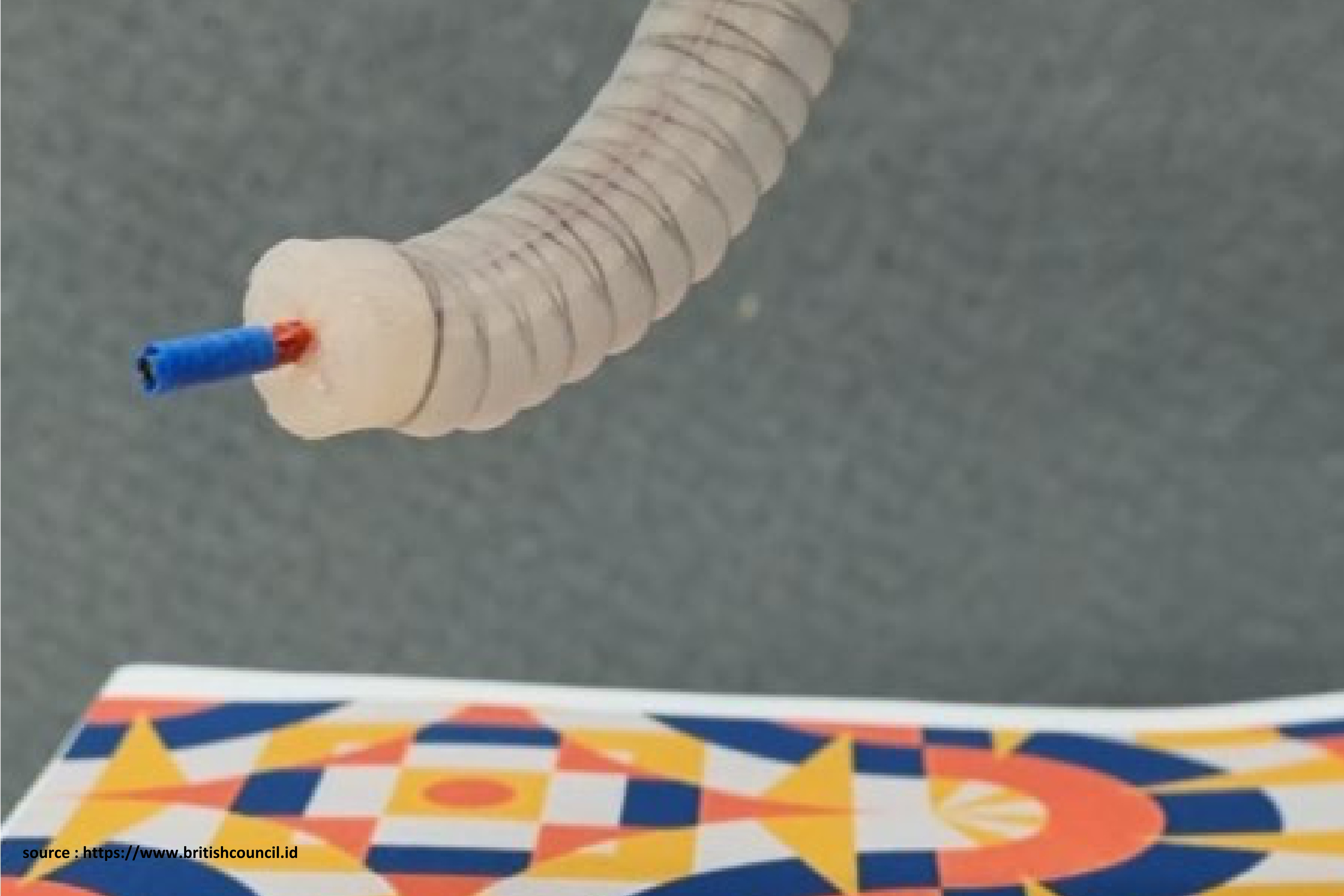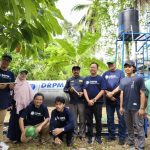Soft Robotics for Improved Healthcare in Indonesia
Respiratory diseases pose a significant issue affecting the wider health of the Indonesian population. Contributing factors to this problem include air pollution, exposure to cigarette smoke, environmental cleanliness, and limited access to healthcare. The high rates of respiratory diseases require serious efforts to address and enhance health resilience in Indonesia.
One medical treatment used to address respiratory diseases is endotracheal intubation. This procedure involves placing a tube into the throat and airway to assist in diagnosing and treating respiratory illnesses. However, endotracheal intubation carries significant risks and can lead to severe complications or death if not done correctly or under inappropriate conditions.
To face this challenge, the Indonesian government collaborated on research with the United Kingdom (U.K.) government through the Newton Funds program in 2020. In this collaboration, the Faculty of Mechanical and Aerospace Engineering (FTMD) of the Bandung Institute of Technology (ITB) partnered with the Mechanical Engineering department of Imperial College London to develop soft robotics technology for healthcare in Indonesia. This collaboration was termed “Soft Robotics for Affordable Healthcare in Indonesia.”
Through this research, the FTMD team, including Prof. Ir. Andi Isra Mahyuddin, Ph.D., Arif Sugiharto, S.T., M.T., Dr. Eng. Sandro Mihradi, Dr.Eng. Ferryanto, ST., MT., Ir. Indrawanto, M.Eng., Ph.D., and Vani Virdyawan, S.T, M.T., Ph.D., developed an affordable version of soft robotics that can be produced using available manufacturing methods. Focusing on design and manufacturing processes, the FTMD team also gained specialized knowledge about soft robot manipulator control from experts at Imperial College.
Soft robotics holds significant potential in various applications, especially in healthcare. Due to its safe nature and ability to interact with the human body without the risk of injury, using soft robotics in medical procedures can reduce complications and minimize surgical wounds. The output of this collaboration is soft robotics capable of performing bronchoscopy procedures for treating respiratory diseases such as lung cancer.
The developed soft robot has specific specifications: it’s cylindrical, can move in two directions (bending and rotating), and the materials used are safe for human organs, biocompatible, washable, and disposable. The creation process is relatively simple but with advanced control to achieve high precision. With the FTMD ITB research team’s efforts, they successfully developed a robot prototype with a 6.5mm diameter. This success leads to new intellectual property and opportunities for improved respiratory care in Indonesia.
Both research teams also considered sustainability in their research. Beyond developing new solutions for various procedures, they aimed to empower FTMD researchers and students. This approach is intended to reduce reliance on the global supply chain vulnerable to disruptions during pandemics. An example of their initiatives is hosting a soft robotics workshop at FTMD ITB. Involving experts and other FTMD researchers, including students, they hope to promote knowledge exchange and sustained innovation in soft robotics in Indonesia.
Through the collaboration between FTMD ITB and the Mechanical Engineering department at Imperial College London, it is hoped that Indonesia can possess efficient and affordable soft robotics manufacturing capabilities. This will not only increase Indonesia’s self-reliance in medical technology but also open up further development potential in healthcare and other industries.
This collaboration marks an essential step in enhancing technology capabilities and innovation in Indonesia and promotes sustainable development in healthcare and the manufacturing sector.
(written by M Bintang Alriza)
(edited by Ainayya Azzahra)







